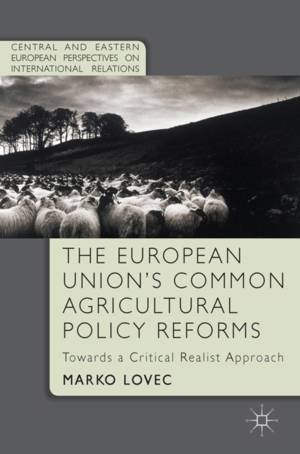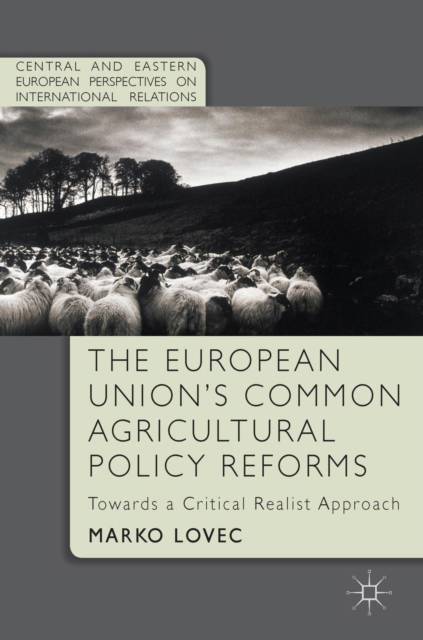
- Retrait gratuit dans votre magasin Club
- 7.000.000 titres dans notre catalogue
- Payer en toute sécurité
- Toujours un magasin près de chez vous
- Retrait gratuit dans votre magasin Club
- 7.000.0000 titres dans notre catalogue
- Payer en toute sécurité
- Toujours un magasin près de chez vous
The European Union's Common Agricultural Policy Reforms
Towards a Critical Realist Approach
Marko LovecDescription
This book engages in the controversies of the European Union's Common Agricultural Policy (CAP) reforms, demonstrating how these are reiterated by mainstream theoretical approaches in the field.
The reforms that the European Union's CAP underwent during the last three decades were intended to make it less trade-distorting, more taxpayer-friendly and more able to meet the new challenges of environmental concerns and rural development/territorial cohesion. The outcome of the reforms has, however, contradicted these objectives, with the controversies being reiterated by the mainstream theoretical approaches in the field.
European Union's Common Agricultural Policy Reforms argues that these controversies are due to reductionist, rationalist and idealist assumptions with regard to the object of inquiry applied by mainstream approaches. It proposes an alternative critical approach that takes into account the role of real material factors. Critical realism isnot just an alternative explanation of CAP reforms but an alternative theory of how explanations can be made, which enables readers to reflect upon and endorse the results of existing lines of research in proceeding towards deeper level theory.
Spécifications
Parties prenantes
- Auteur(s) :
- Editeur:
Contenu
- Nombre de pages :
- 195
- Langue:
- Anglais
- Collection :
Caractéristiques
- EAN:
- 9781137572776
- Date de parution :
- 19-08-16
- Format:
- Livre relié
- Format numérique:
- Genaaid
- Dimensions :
- 160 mm x 217 mm
- Poids :
- 381 g

Les avis
Nous publions uniquement les avis qui respectent les conditions requises. Consultez nos conditions pour les avis.






